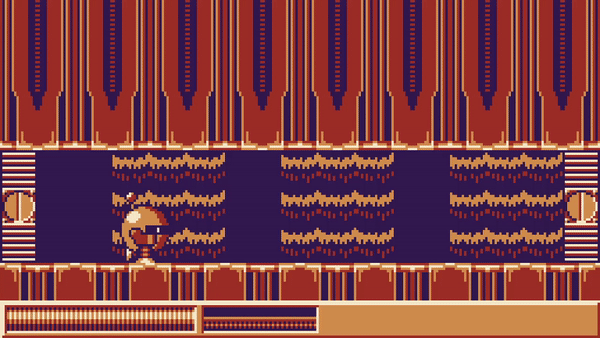Punching a landlord can be wholesome too, you know?

I’m inherently sceptical of movements, or aesthetics that make non-violence and cozyness one of their main monikers. The reasons for that are fairly complex, but one of the main one’s was that I went to a school as a kid, that was very much about these things. It was all about being friendly, nice and cooperative, while in reality this very often meant that kids that caused issues were gradually pushed out of the school, or were isolated within their classes. In the end the image of this school being the kind of idyllic place of cooperative learning was more important than the wellbeing of the kids that actually went there.
Western culture is very much obsessed with decorum and respectfulness over everything else. Sure, you can point out problems, but god forbid if you don’t go through the proper channels, or use strong language. Doesn’t matter how much someone else’s actions have hurt you, the moment you get rude about it, is the moment your concerns are completely invalidated.
All this is the main reason why I really can’t get around to being cool with the term “wholesome games”. Doesn’t mean these games shouldn’t exist and people who make them are terrible, not at all. But I’m wondering who this term is actually for, and what purpose it might end serving? The reason for all this, by the way, is that I woke up to some twitter rumblings about the term, because apparently a list of criteria got posted, that determines what qualifies a game as “wholesome”.
The list is as follows
- Low stakes
- Low Stress
- Low Violence
- Uplifting Themes
- Thoughtful representation of marginalized groups
Apparently, if your game checks off two of those points, it can be considered wholesome. This list is already weird, because as always, it’s highly subjective. What’s low-stress for me, could be very high-stress for someone else. But anyway.
I immediately went and checked, if maybe GB Rober would qualify as a wholesome game. After all it does feature a very round and cute robot as its main protagonist. Sadly it only really checks the “uplifting themes” part and nothing else. I mean technically, only one character actually dies in this game (I don’t count explosions as characters dying), but I doubt that anyone would follow this line of thinking.
So in order to make GB Rober wholesome, I could make it so that instead of shooting every landlord in the face, you just give them cakes and be friends with them. That would get rid of the (obvious) violence, but would also completely change the tone and message of the game. Instead of instigating a violent uprising against an oppressive upper class, you instead would collaborate with said upper class.
The violence however, wouldn’t really go away, it would just be less obvious. Workers would still be forced to work, after all. But since the explosions would be gone, I’m pretty sure, most people would now consider GB Rober to be non-violent.
It’s strange considering the vast amounts of violence it commits every day, but liberal society is very obsessed with non-violence. You see this in the white-washing of civil rights leaders and protests, in attempts to debate Nazis, instead of just punching them, or how recent anti-police protests were immediately condemned the moment someone broke the window of a store, or set a car on fire.
Open violence and anger are something that is completely unacceptable. However, the everyday violence that is inherent to capitalist society, is.
So claiming non-violence as a defining characteristic for your game genre can be highly dangerous, if you don’t also critically examine what “violence” actually means in this context.
This gets especially dangerous, if you combine the non-violence, with the “thoughtful representation of marginalized groups”. A lot of marginalized people experience violence on a daily basis, but this list actively discourages victims of said violence to create works about these experiences. Thoughtful representation in the context of a wholesome game, is only then wholesome, if it downplays, or removes any notion of violence. Again, that doesn’t mean that every game that is about marginalized experiences has to be violent. No one has to center their trauma and hurt all the time. However, I’m concerned about what this centering around non-violence might end up creating.
Wholesome games is basically a marketing term with its own curation and festivals built around it. Considering that it also centers both, non-violence and thoughtful representation, as its core characteristics, it might lead to situations where the only representation that gets more visibility is this kind of low-stakes, sanitized reflection of reality.
On the other hand, people that do want to center the struggle of marginalized people to overthrow their oppressors might end up having a much harder time getting the attention they need to keep creating.
And none of this has to be intentional. I’m pretty sure the folks that created the “wholesome games” twitter account, didn’t want to make marginalized representation more palatable for the general public. However the problem with capitalism is that it will do all of this regardless of intent. Therefore I feel it’s important to consider what consequences might come out of these definitions and be critical of them.